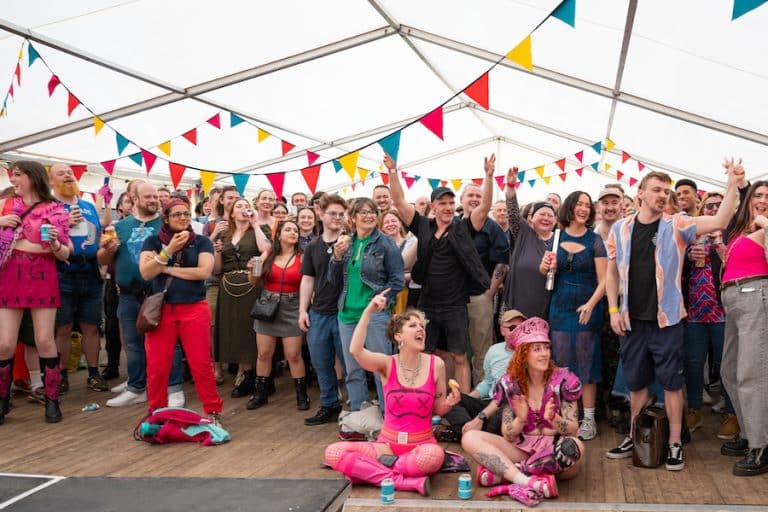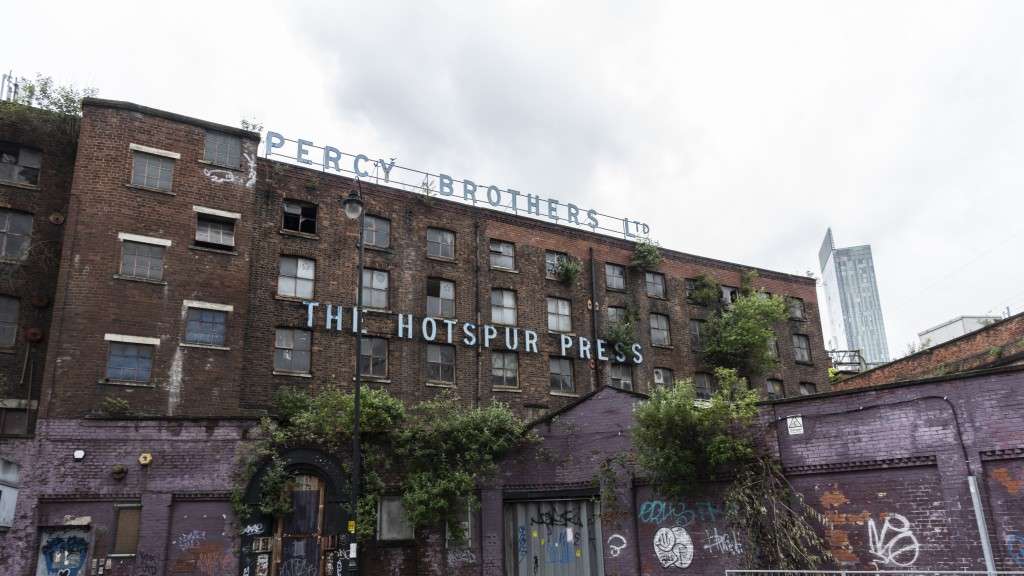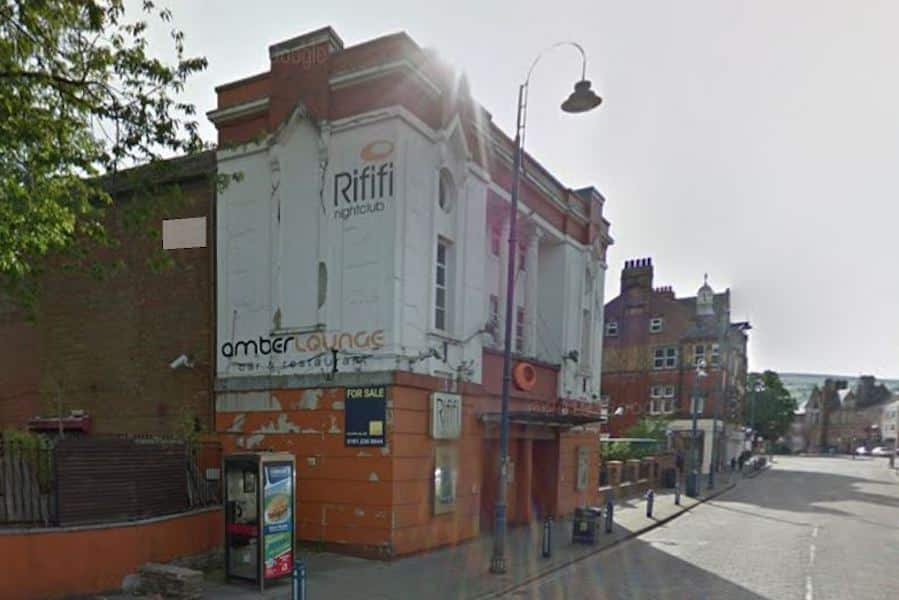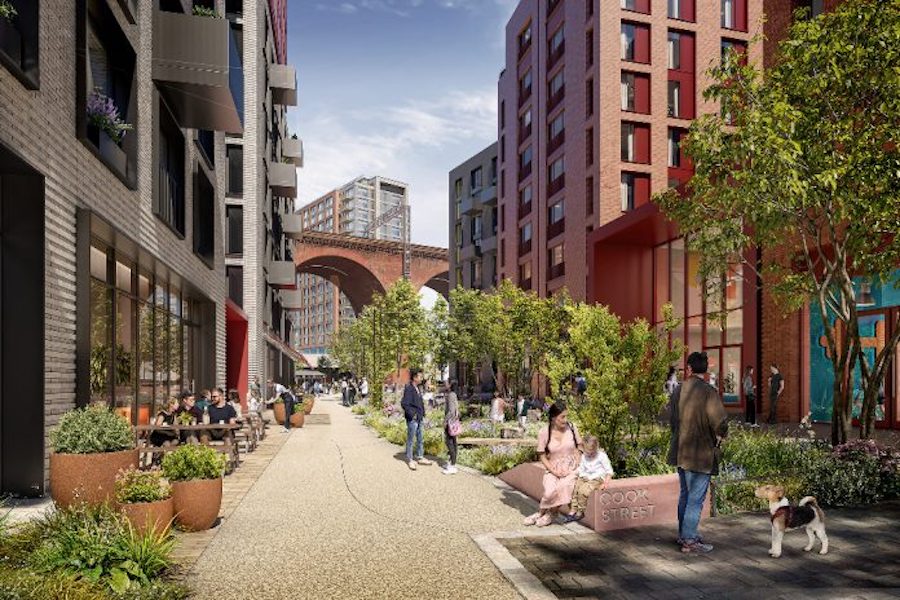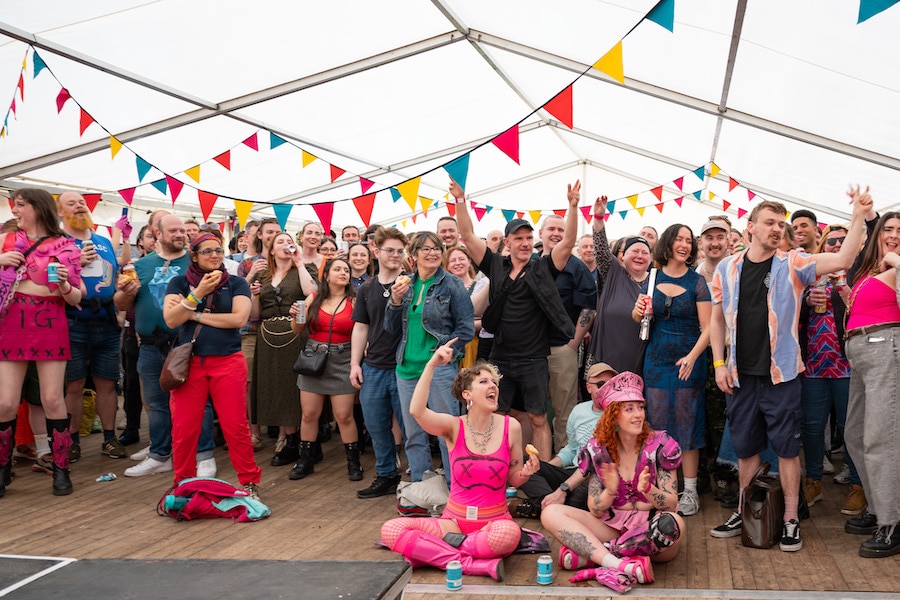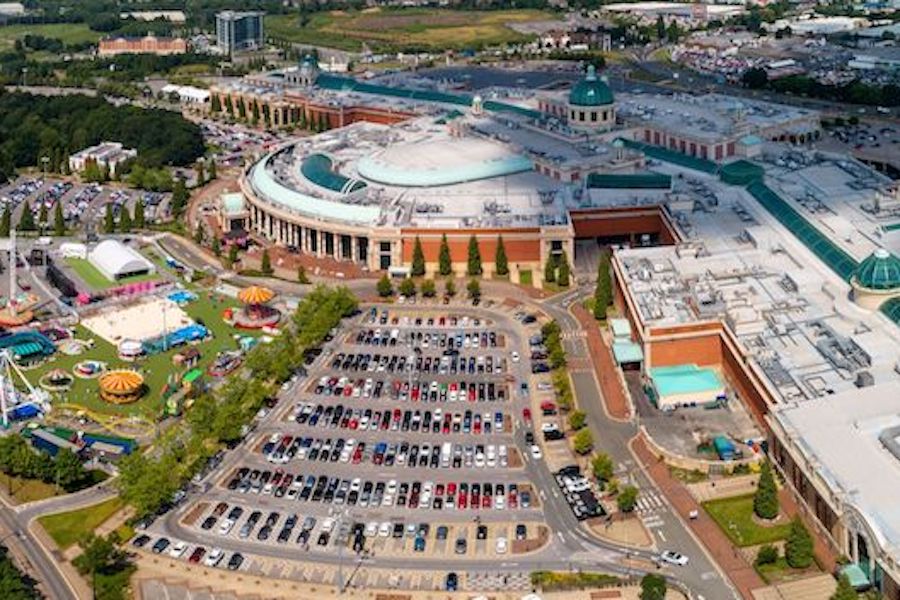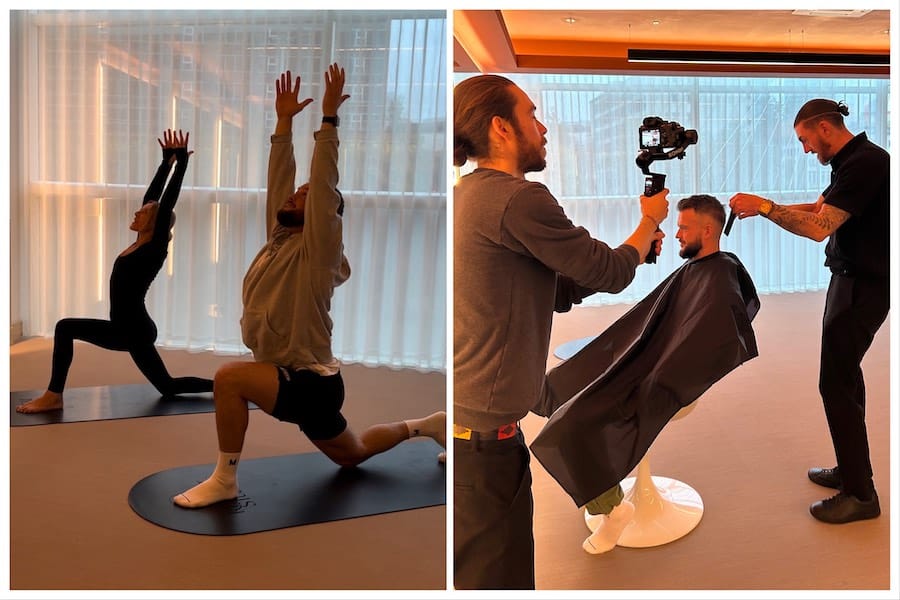The amazing community centre planning to become UK’s most sustainable gig venue
- Written by Thom Bamford
- Last updated 2 years ago
- Community, People
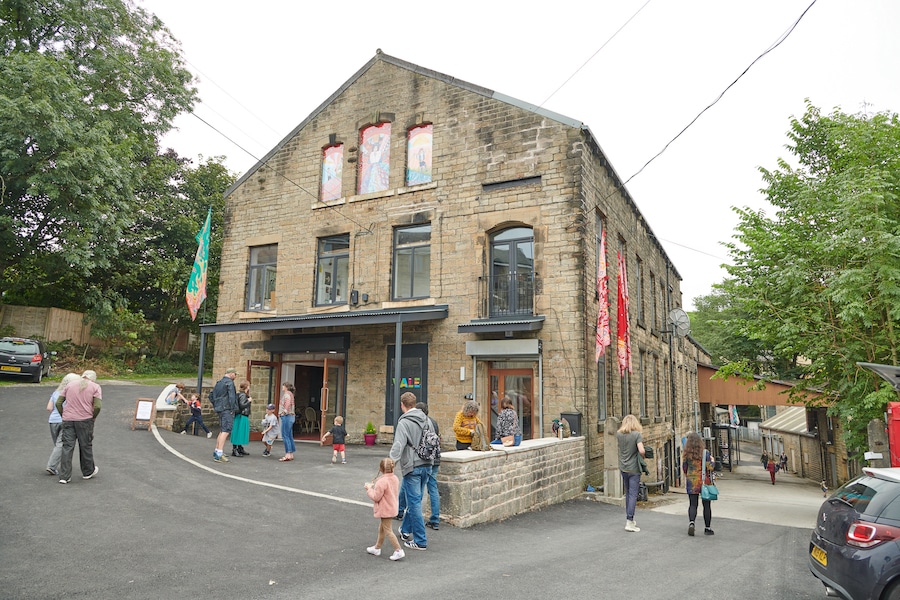
The Vale, in Mossley, plans to become the UK’s most eco-friendly band venue by switching to ‘homemade’ hydroelectric power.
All with the help of a team of volunteers, a recycled Segway wheel, some scrap metal and a length of drainpipe.

The future of self-sufficiency
According to Jon Mambo, an electrical engineer and musician who is heading up the team of project volunteers, a small waterfall close to the building, a former textile mill, holds the key to their future self-sufficiency.
His calculations show that a £100 homemade micro-generator placed at the top of the onsite waterfall’s two-metre plunge will provide the electricity needed to power The Vale’s monthly gigs.
The team, which includes environmentalists, artists, gardeners, engineers and a former local Green Party councillor, hopes the generator will be working at its full potential in time for The Vale’s second birthday party gig in September.
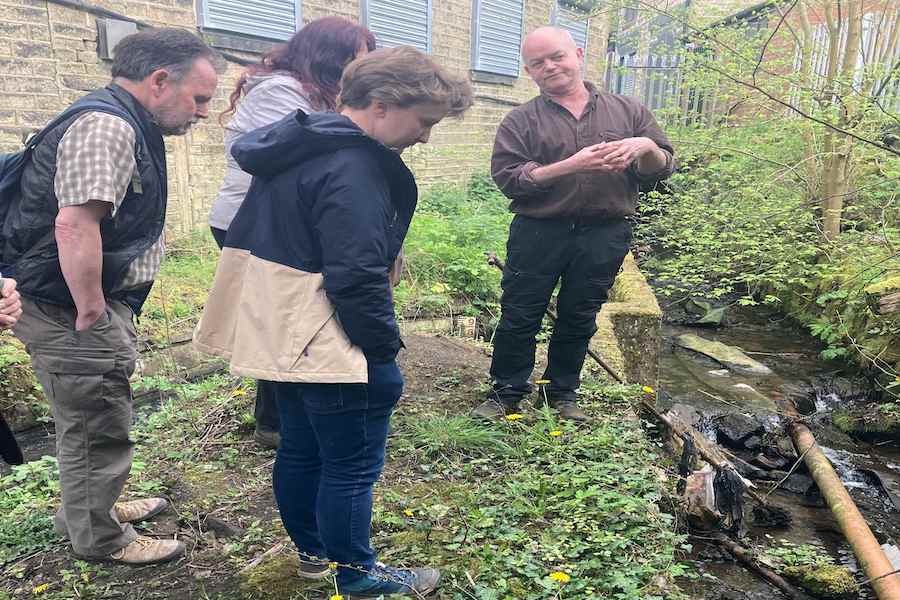
Handbuilt green energy
Handbuilt almost entirely from recycled and found materials, it is powered by a £30 second-hand Segway wheel.
Project costs have been kept down by support from local businesses, including scrap metal donated by Crescent Sheet Metal, based at nearby Wood End Mill.
Their contributions include a set of handrails which were made as film props for the award-winning Channel 4 police black comedy No Offence, which is set in Manchester.
The small size of the waterfall, which forms part of a 6ft wide culvert (a man-made water channel for redirecting a watercourse away from a building or road) means there is a modest upper limit to the amount of power the team can hope to produce.
The future of green energy
But Mambo says the exercise, which is supported by a Community Knowledge Fund grant from UK Research and Innovation (UKRI), delivered by The Young Foundation, is more about demonstrating the potential for communities to take small-scale hydroelectric power generation into their own hands.
Nevertheless, Mambo hopes the project will also bring an annual cost saving to The Vale of £3-500 and will reduce the venue’s CO2 emissions by 100 tonnes.
Saddleworth Community Hyrdo
Inspired by the nearby Saddleworth Community Hydro at Dove Stone Reservoir, Mambo has been monitoring the power usage at the arts venue and community centre minute by minute since the end of February 2023.
He says the tiny handcrafted generator needs to make on average 2.4kWh of power every day of the year, to power their monthly gigs, that’s about the same amount needed to boil a 1.5-litre kettle of water 15 times a day.
“A number of factors including rainfall and the efficiency of our generator, will have an impact on how much power we can generate each day,” he said, “but our calculations show that even taking into account periods of drought, we will have enough to power at least 12 gigs a year, with some left over.
“Whilst what we are doing is a drop in the ocean, we aim to produce a simple and low-cost way local people can harness the energy of the mass of small streams in the local area.
“Being in Mossley, we have a strong history of hydroelectric power because the textile mills of the 19th century would have been powered by water wheels.
“So what we are doing is not new – we are simply rediscovering what we used to know.”
Saddleworth Community Hydro, in neighbouring Greenfield, takes advantage of a 31m high dam and generates enough electricity to power around 100 homes.
Mambo, who runs a small business hand-building guitar amps, has determined that it takes on average 70kWh to power a gig.
With a different band playing at The Vale every month (recent gigs have included Gambian kora player Suntou Susso and the autumn and winter see Malawian viral sensation Gasper Nali, virtuoso sitarist Jasdeep Singh Degun and the Hackney Colliery Band take to the stage) he has worked out that the total power needed for a year is 840kWh, well within the micro-generators capability.
His figures take into account the electricity required to power the bands’ equipment, plus the extra power needed for preparation and cleaning either side of the gig, space heating, lighting, the sound system, bar coolers and hot water.
Though the venue, which is staging a gig by Manchester funk band Buffalo Brothers at the end of this month, is looking forward to becoming hydro-powered, Mambo says they are not planning to go off-grid just yet.
He said: “The power we generate from the waterfall will be transformed into mains voltage via a grid-tie inverter, the same device people attach to solar panels. This will allow us to feed our electricity into the National Grid.
“Anything we generate will offset our usage in other areas, and, if the smart meter is smart enough, we will also receive a payback from the power company for any extra we produce.
“If the project is a success, we will scale up by building more micro-generators to meet more of The Vale’s year-round energy needs.
“We could buy one off the shelf for £5-700, but where’s the fun in that?”
A more sustainable future
As part of the project, the team of volunteers has cleared the culvert of rubbish, making it a more hospitable environment for local wildlife. Mambo says the tiny generator, which will be housed inside a piece of 5-inch drainpipe – the only brand new component in his Heath Robinson-style design – will have no detrimental impact on the surroundings.
“The generator will make a small degree of noise,” he said, “but it won’t be possible to hear it over the sound of the waterfall, which itself can be pretty loud after heavy rainfall.
“It’s certainly not going to be scaring wildlife away and both plants and animals will benefit from the substantial clearing we have undertaken of the entire culvert as part of this project.”
The Impacts of climate change
Amelia Bayliss, general manager, The Vale, said: “The people of Mossley are progressively experiencing the impacts of climate change. The moors around us burn with increasing frequency and intensity and rivers and tributaries are habitually bursting their banks, causing damage to people’s homes and businesses, and risking loss of life.
“Without urgent action, what we’ve seen so far is only the beginning. Although this is a global problem which needs collective action, successful small hyper-local interventions such as our micro-hydroelectric power generation can be replicated elsewhere, leading to big cumulative impacts.
“Over this six-month pilot, residents have developed the skills to reproduce the project across other suitable sites in Mossley and beyond.
“The potential is enormous when people take the power into their own hands.”
- This article was last updated 2 years ago.
- It was first published on 12 June 2023 and is subject to be updated from time to time. Please refresh or return to see the latest version.
Did we miss something? Let us know: [email protected]
Want to be the first to receive all the latest news stories, what’s on and events from the heart of Manchester? Sign up here.
Manchester is a successful city, but many people suffer. I Love Manchester helps raise awareness and funds to help improve the lives and prospects of people across Greater Manchester – and we can’t do it without your help. So please support us with what you can so we can continue to spread the love. Thank you in advance!
An email you’ll love. Subscribe to our newsletter to get the latest news stories delivered direct to your inbox.
Got a story worth sharing?
What’s the story? We are all ears when it comes to positive news and inspiring stories. You can send story ideas to [email protected]
While we can’t guarantee to publish everything, we will always consider any enquiry or idea that promotes:
- Independent new openings
- Human interest
- Not-for-profit organisations
- Community Interest Companies (CiCs) and projects
- Charities and charitable initiatives
- Affordability and offers saving people over 20%
For anything else, don’t hesitate to get in touch with us about advertorials (from £350+VAT) and advertising opportunities: [email protected]

Here’s how the incredible revamp of Manchester Airport Terminal 2 will look when finished
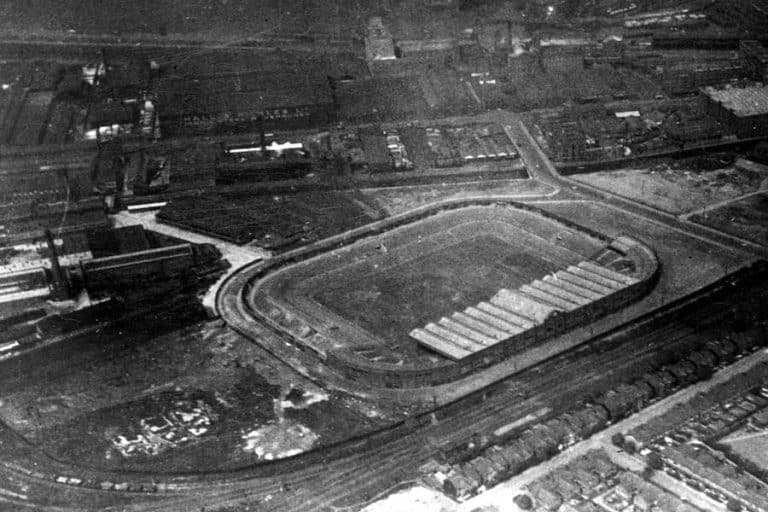
The Greater Manchester town centre going through a reboot – but will it succeed?
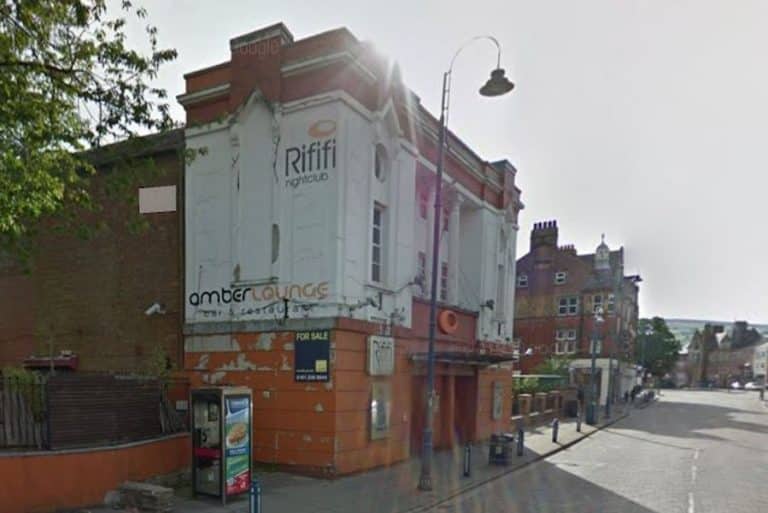
Old nightclub at the heart of ‘Staly Vegas’ could be transformed into new food hall
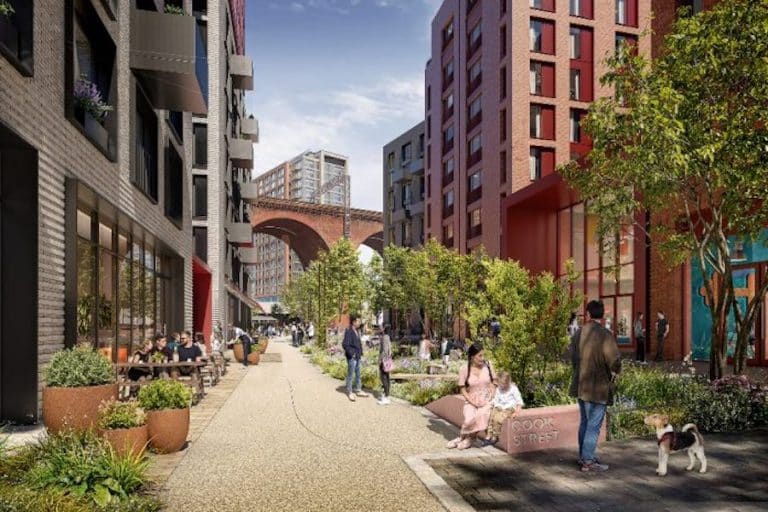

The best pizza in Manchester and where to get a slice of the action
